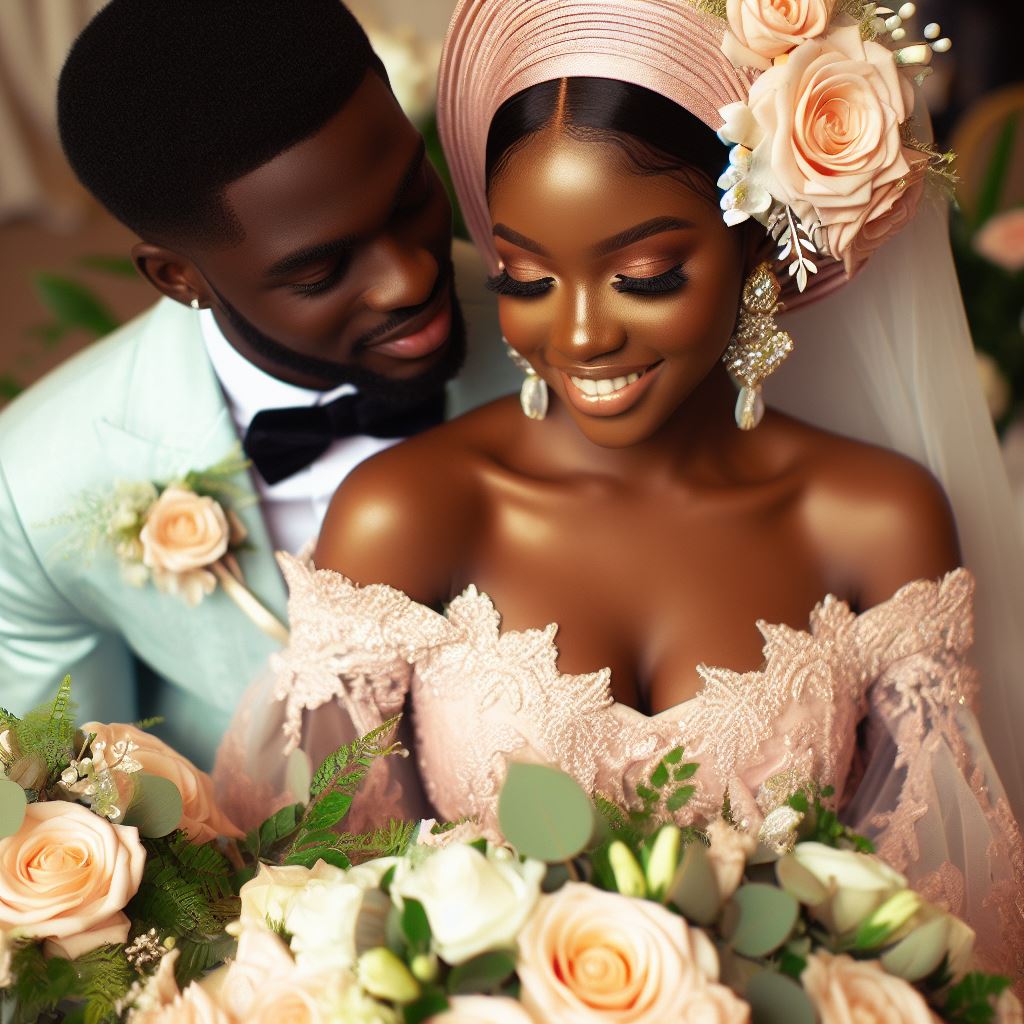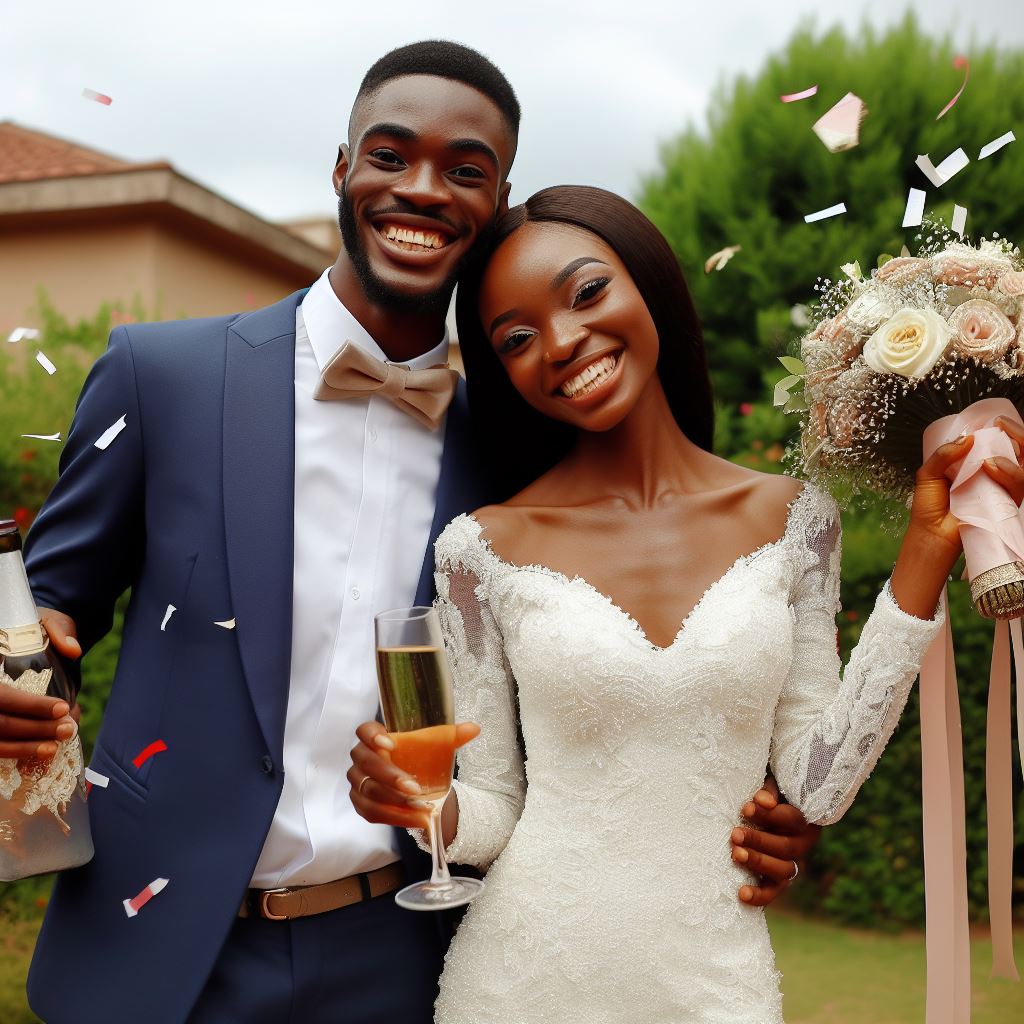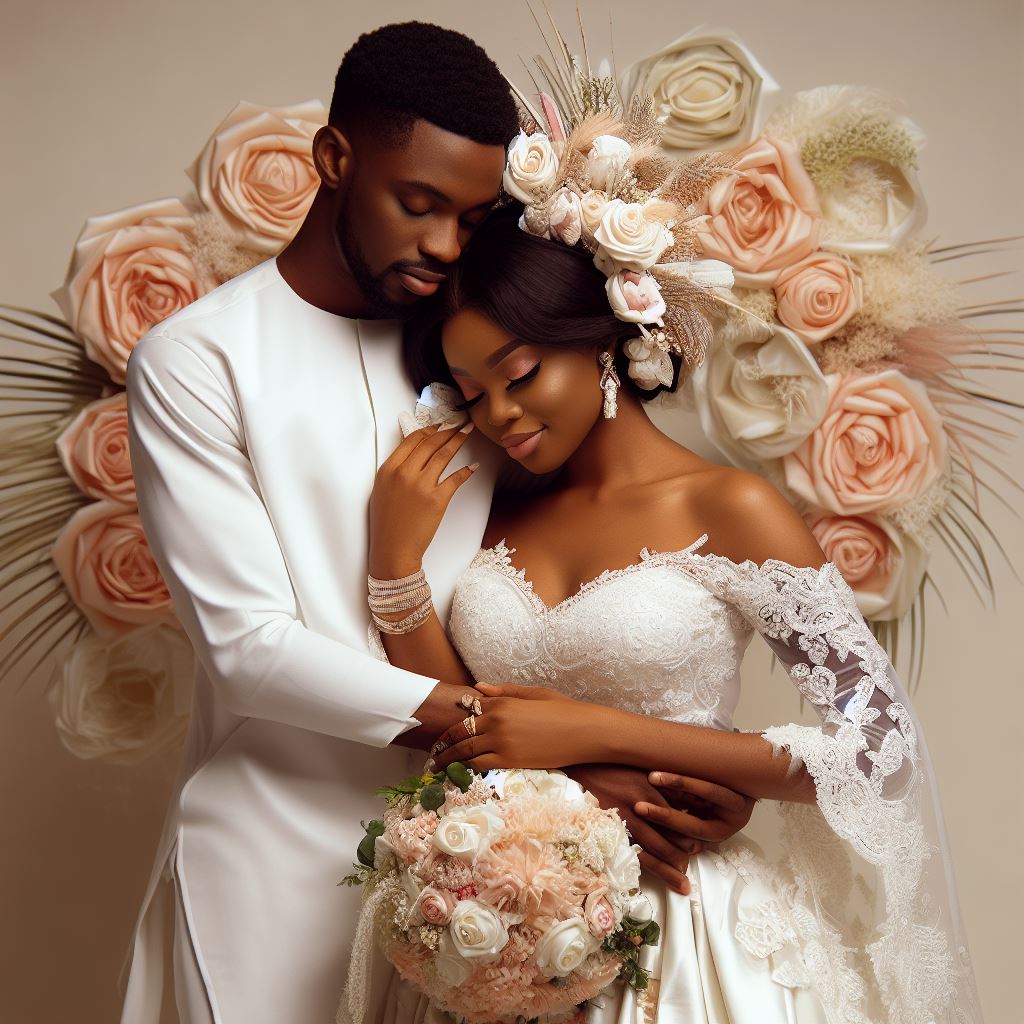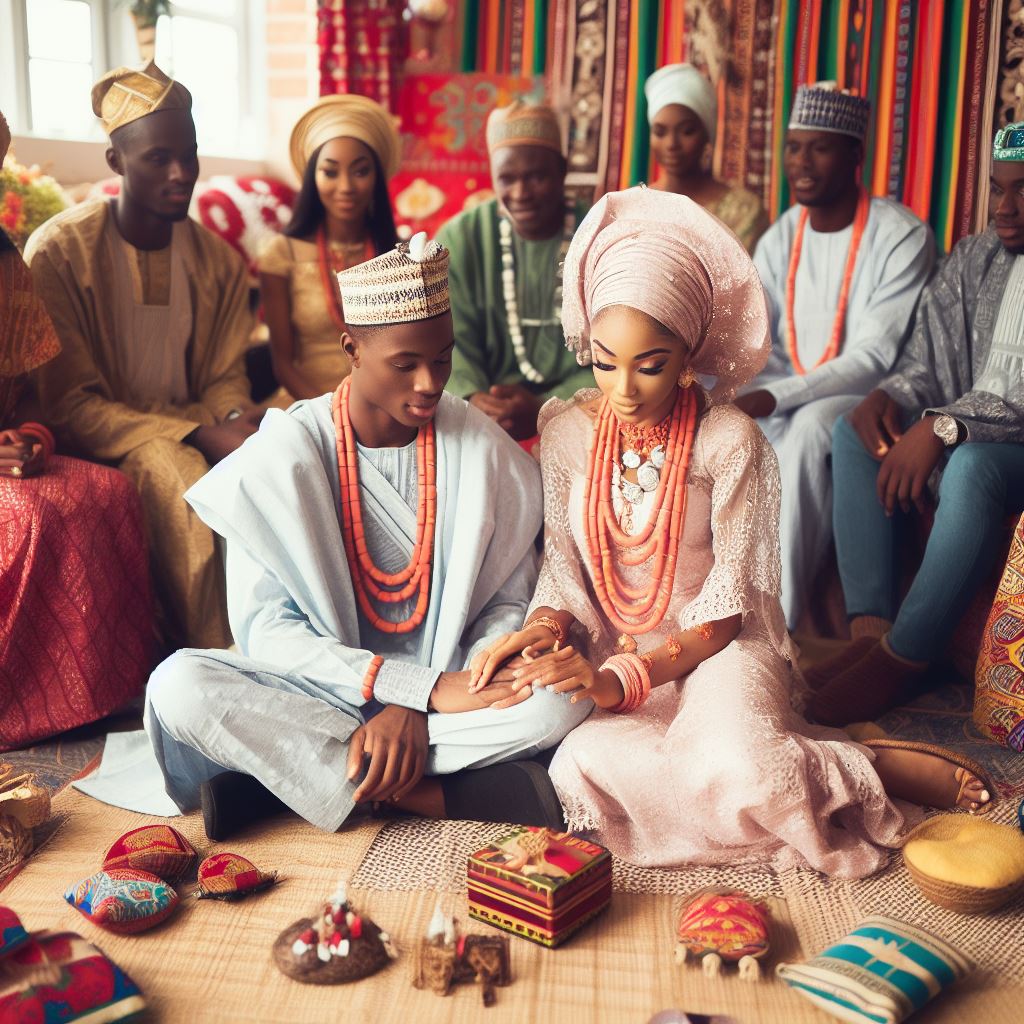Introduction
Cross-cultural marriages in Nigeria are a captivating blend of traditions that harmoniously unite individuals from diverse cultural backgrounds in the name of love.
Nigeria, a country with a rich cultural tapestry, boasts over 250 ethnic groups. Each of these groups has its own unique customs, traditions, and languages, adding to the country’s remarkable diversity.
In this intricate web of cultures and traditions, marriage holds a profound significance.
It is not only a union of two individuals but a beautiful merging of two distinct cultures, a celebration of diversity, and a testament to the country’s cultural richness.
Nigerian weddings are vibrant and lively, reflecting the essence of this unity.
They showcase the harmonious coexistence of customs, from the Igbo, Yoruba, and Hausa traditions to smaller ethnic groups, each bringing its own set of rituals and symbolism to the matrimonial ceremony.
In this section, we will delve into the enchanting world of Nigeria’s cross-cultural marriage wishes, exploring the symbolic gestures and heartfelt expressions that make these unions truly beautiful and unique.
Let’s embark on a journey through love, tradition, and the celebration of diversity in Nigeria’s cross-cultural marriages.
Traditional Practices and Marriage Wishes
In Nigeria, weddings are not just the union of two individuals, but a celebration that brings together families and communities.
Traditional practices and rituals are an integral part of these weddings, with marriage wishes exchanged to establish a strong foundation for the couple.
1. Traditional Practices and Rituals
- Kicking off the wedding festivities, the groom’s family visits the bride’s family to formally ask for her hand in marriage.
- This process, known as the “Introduction Ceremony,” involves the exchange of gifts and a meeting between both families to discuss the union.
- Next comes the traditional engagement, also known as the “Traditional Wedding Ceremony,” where the families officially accept the marriage.
- During this ceremony, the couple performs various rituals like the pouring of libation to honor their ancestors and seeking their blessings.
- The bride is often adorned in a colorful attire, which represents her cultural heritage, and the groom also dresses in traditional attire.
- The couple undergoes a series of traditional rites, symbolizing their transition from individuals to a married couple.
- One of the most important rituals is the “Tying of the Knot,” where the couple’s wrists are tied together with a rope or cloth.
- This act symbolizes their unity and commitment to each other in the journey of marriage.
2. Marriage Wishes Exchanged Between Families and Communities
- Marriage wishes play a significant role in Nigerian weddings, as they express the hope and blessings for the couple’s future.
- These wishes are exchanged not only between families but also among friends and well-wishers present at the wedding.
- The wishes often focus on the couple’s happiness, prosperity, fertility, and long-lasting love and harmony in their marriage.
- Family elders and community leaders also bestow their blessings and offer marriage advice to the couple during the ceremony.
- These wishes and advice hold great importance as they serve as guidance for the couple’s journey together.
3. Significance of Marriage Wishes in Establishing a Strong Foundation for the Couple
- Marriage wishes exchanged during Nigerian weddings go beyond mere words,they are believed to have a deeper spiritual and cultural significance.
- These wishes are seen as a means to invoke blessings from the ancestors and seek their guidance and protection for the couple.
- Moreover, the wishes act as a reminder for the couple to cherish their union, work through challenges, and always strive for a fulfilling relationship.
- They serve as a source of inspiration, motivating the couple to build a strong foundation and create a harmonious household.
- In a society with diverse cultural backgrounds, marriage wishes foster a sense of unity and solidarity among different communities.
Nigerian weddings are not just ceremonies but celebrations that embody the rich traditions and cultural practices of the diverse Nigerian population.
Traditional practices and rituals, along with the exchange of marriage wishes, hold immense significance in establishing a strong foundation for the couple.
They create a sense of unity, invoke blessings, and provide guidance as the couple embarks on their journey of married life.
Read: How to Replace a Lost Marriage Certificate in Nigeria
Cross-Cultural Influences
Nigeria is a country known for its diverse cultural heritage. With over 250 ethnic groups, each with its own language, traditions, and customs, the country is a melting pot of cultural richness.
However, the influence of globalization has resulted in increased interactions between Nigerians and people from other countries, leading to cross-cultural marriages.
The Impact of Globalization on Nigerian Marriages
Globalization has played a significant role in shaping Nigeria’s cross-cultural marriages.
The increased ease of travel, advancements in technology, and the rise of social media have all contributed to a more interconnected world.
These factors have not only facilitated interactions between different cultures but have also created opportunities for individuals from diverse backgrounds to meet and form relationships.
Furthermore, globalization has led to a blending of cultures, where individuals are exposed to different beliefs, practices, and ways of life.
This exposure has allowed Nigerians to embrace and appreciate other cultures, leading to a rise in intercultural relationships.
The Rise of Cross-Cultural Marriages in Nigeria
In recent years, cross-cultural marriages have become increasingly common in Nigeria.
As societal barriers and stereotypes are being challenged, more Nigerians are open to the idea of marrying someone from a different cultural background.
Education and career opportunities have also played a role in the rise of cross-cultural marriages.
As Nigerians travel abroad for higher education or employment, they often meet individuals from different cultural backgrounds and form relationships.
These unions can bring together people from various parts of the world, creating a beautiful tapestry of cultures.
Challenges Faced by Couples in Cross-Cultural Marriages
While cross-cultural marriages can be enriching, they also come with unique challenges. One of the main obstacles faced by couples is navigating multiple cultural identities.
Each partner brings their own set of traditions, values, and expectations into the relationship.
Balancing these cultural differences can be a delicate task, requiring open communication, compromise, and respect.
Issues such as language barriers, religious differences, dietary preferences, and family expectations may need to be addressed and accommodated to ensure harmony within the marriage.
Another challenge is dealing with societal perceptions and stereotypes. In some cases, cross-cultural marriages may face resistance from both families and communities.
These external pressures can put a strain on the relationship and require the couple to navigate through societal expectations while preserving their own cultural identities.
However, despite these challenges, cross-cultural marriages have the potential to be incredibly beautiful and rewarding.
They offer an opportunity for individuals to learn about and appreciate different cultures, broaden their perspectives, and build a strong foundation of love, respect, and understanding.
Globalization has had a significant impact on Nigerian marriages, leading to a rise in cross-cultural unions.
While these marriages face challenges in navigating multiple cultural identities, they also provide a platform for cultural exchange and growth.
As Nigerians continue to embrace diversity and celebrate their unique cultural heritages, cross-cultural marriages will continue to flourish in the country.
Read: How to Choose the Right Marriage Counselor for You in Nigeria
Explore Further: Building Financial Synergy in Nigerian Marital Homes
Beauty in Diversity
Celebrate the beauty of Nigeria’s diverse cultural traditions in weddings
Cross-cultural marriages are a beautiful testament to the diversity found in Nigeria.
Weddings in Nigeria are not just a celebration of love between two individuals, but also a union of different cultural traditions and practices.
Each marriage brings together families from various ethnic backgrounds, showcasing the beauty of Nigeria’s cultural tapestry.
One of the most enchanting aspects of Nigerian weddings is the splendor of the different traditional attires worn by the bride and groom.
From the richly embroidered Igbo attire to the vibrant Yoruba gele, every outfit tells a story and reflects the cultural heritage of the couple.
These weddings become a visual feast for the eyes, showcasing the diverse and colorful beauty of Nigeria’s traditions.
How cross-cultural marriages create opportunities for cultural exchange and learning
However, cross-cultural marriages go beyond just appearances. They create opportunities for cultural exchange and learning, as families come together to celebrate and merge their customs.
During these occasions, people from different cultures interact, share stories, and learn from one another.
It fosters understanding, appreciation, and respect for diversity, leading to a more inclusive and harmonious society.
Importance of embracing and appreciating different cultural practices
The experiences gained through cross-cultural marriages also open doors to explore and embrace new traditions.
For example, a bride from the Hausa tribe may learn the dance routines of her Yoruba husband’s family, or a groom from the Igbo tribe may participate in the traditional cooking practices of his Fulani wife’s community.
This exchange of knowledge and appreciation for different cultural practices enriches the lives of both individuals and their families.
Moreover, cross-cultural marriages play a vital role in preserving and promoting Nigeria’s cultural heritage.
Through the coming together of diverse traditions, these marriages create a melting pot of customs and rituals.
They become an opportunity for younger generations to learn about their roots, to understand their heritage, and to keep their cultural practices alive.
It is crucial to remember that embracing and appreciating different cultural practices is not only beneficial for the individuals involved in cross-cultural marriages but also for society as a whole.
By cultivating an inclusive mindset, we create an environment where diversity is celebrated and differences are valued.
Nigeria’s cross-cultural marriages are a testament to the beauty found in diversity.
They showcase the richness of various cultural traditions during weddings while also providing opportunities for cultural exchange and learning.
Embracing and appreciating different cultural practices fosters understanding, respect, and the preservation of Nigeria’s heritage.
Let us celebrate the beauty of Nigeria as it shines brightly through the union of diverse cultures.
Read: Dowry (Mahr) in Islam: Meaning and Nigerian Practices
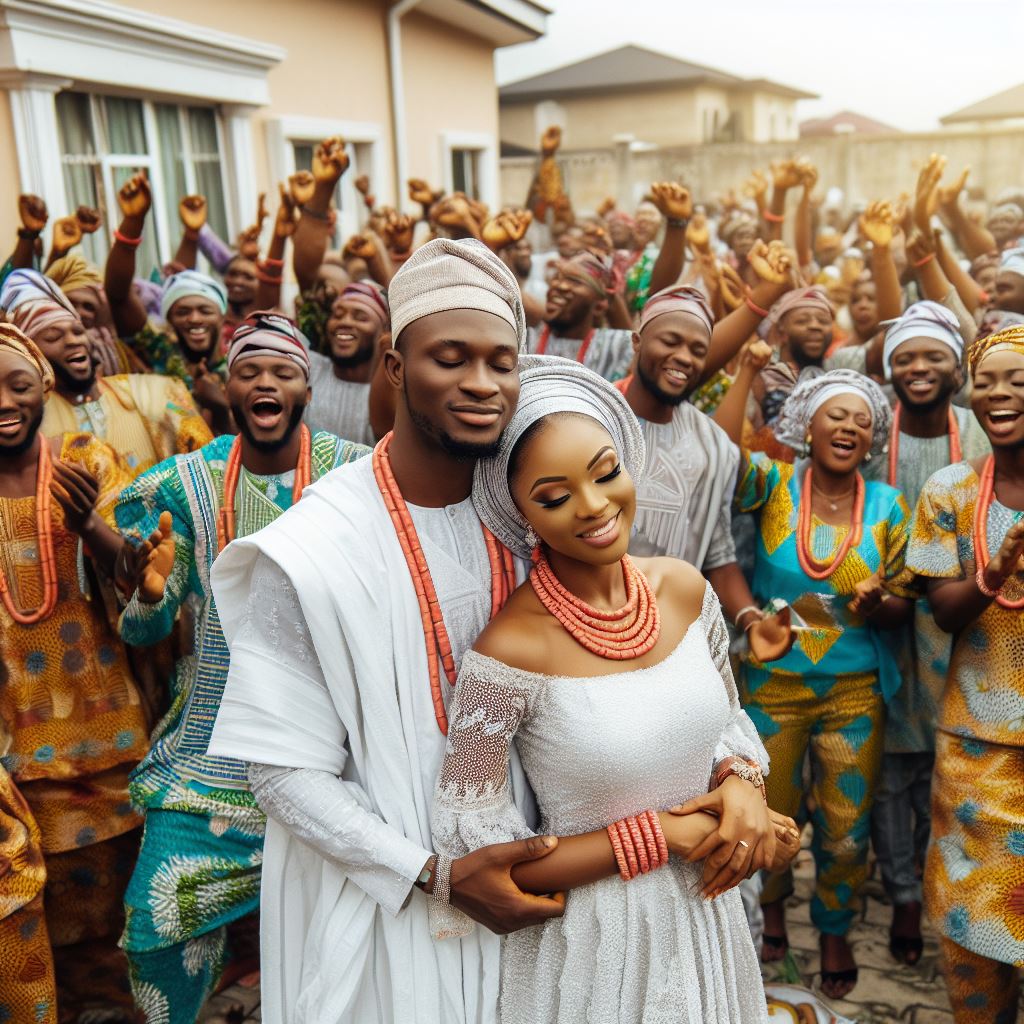
Strengthening Relationships and Building Bridges
Cross-cultural marriages can serve as a bridge between different cultures
Cross-cultural marriages have the potential to serve as a bridge between different cultures, fostering unity and understanding in Nigerian society.
These marriages not only bring together individuals from diverse backgrounds but also create a platform for cultural exchange and growth.
The potential for cross-cultural marriages to promote unity and understanding in Nigerian society
One of the greatest advantages of cross-cultural marriages is the promotion of unity within Nigerian society.
When people from different cultures come together in the sacred bond of marriage, they naturally form a bridge between their respective communities.
This bridge allows for the sharing of traditions, values, and beliefs, creating a beautiful amalgamation of cultures.
Such marriages help break down stereotypes and prejudice, as they challenge societal norms and expectations.
By marrying someone from a different cultural background, individuals open themselves up to new experiences and perspectives.
They are forced to confront their own biases and learn to appreciate and respect different ways of life.
Moreover, cross-cultural marriages contribute to the development of a multicultural society in Nigeria.
When people from different backgrounds come together, they bring with them their unique customs and practices. This blend of cultures enriches society at large, fostering a spirit of inclusivity and acceptance.
Success Stories of cross-cultural Marriages in Nigeria
There are numerous success stories of cross-cultural marriages in Nigeria. These stories serve as a testament to the power of love and the potential for building bridges between cultures.
The couples involved not only overcome the challenges of marriage but also navigate the complexities of merging their cultural identities.
One such success story is the marriage between Ada and Ahmed. Ada, a Christian Nigerian woman, fell in love with Ahmed, a Muslim Hausa man.
Despite initial skepticism from their families, the couple persevered and established a strong foundation of mutual respect and understanding.
They celebrated their diverse backgrounds by blending elements from both cultures in their wedding ceremony, showcasing unity in diversity.
Another inspiring example is the marriage of Chinwe and Emeka. Chinwe, an Igbo woman, and Emeka, a Yoruba man, defied cultural norms and brought their families together.
Through open dialogue and compromise, they created a harmonious household that celebrated the richness of both cultures.
Their children grew up embracing their mixed heritage, appreciating the beauty of their diverse backgrounds.
These success stories highlight the transformative power of cross-cultural marriages.
They demonstrate that love knows no boundaries and that relationships built on respect and understanding can bridge cultural divides.
By sharing their journeys, these couples inspire others to embrace diversity and promote unity within Nigerian society.
Cross-cultural marriages have the potential to strengthen relationships and build bridges between cultures.
They promote unity and understanding in Nigerian society by challenging social norms, fostering inclusivity, and celebrating diverse backgrounds.
The success stories of such marriages inspire others to embrace the beauty of multiculturalism and work towards a more harmonious and united Nigeria.
Read: Customary Marriage vs. Statutory Marriage: What’s the Difference?
Conclusion
Cross-cultural marriage wishes hold immense significance in Nigeria as they bring together people from different backgrounds, fostering unity and understanding.
Nigerian weddings celebrate the beauty and value of diversity, highlighting the richness of various cultures uniting in love and harmony.
Going forward, the future of cross-cultural marriages in Nigeria looks promising, as more couples embrace the idea of blending traditions and creating a vibrant tapestry of love and connection.
These marriages not only bridge cultural gaps but also serve as a testament to the strength and resilience of love, reminding us that amidst our differences.
We are all essentially the same human beings in search of happiness and companionship.
As Nigeria continues to evolve and grow, cross-cultural marriages will undoubtedly play a crucial role in shaping the nation’s social fabric and promoting a more tolerant and inclusive society.
Let us celebrate the beauty of diversity and keep supporting and encouraging these unions, for they have the power to unite us in ways that no other force can.

